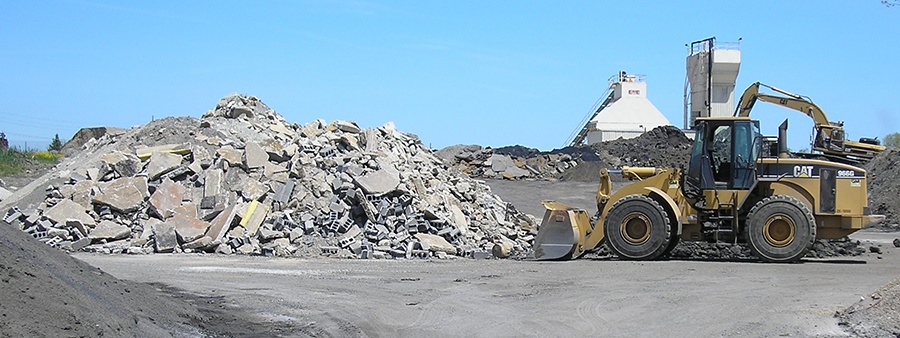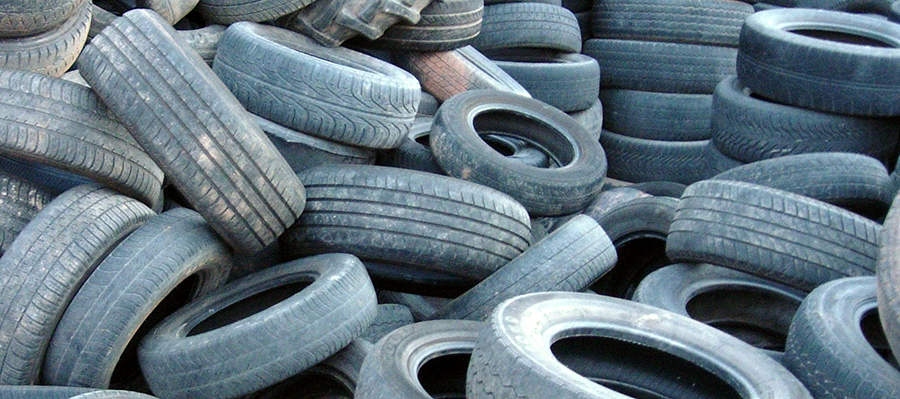We explain what Class B Recyclable Materials in New Jersey are.
When it comes to recycling in New Jersey, folks tend to get confused about some of the regulations. For example, we commonly are approached by someone who wants to start a recycling business in New Jersey who doesn’t get the materials right and thinks that all recycling in New Jersey is considered Class B recycling.
We get it. The NJDEP's website is awful, and getting the right information can be a challenge, to say the least. So, let's discuss Class B materials and recycling in New Jersey to get to the bottom of this.
Are Class B Recyclable materials in New Jersey all types of recyclable materials?
The short answer is no, they're not.
First, realize that all New Jersey recycling approvals fall under the heading of solid waste. Yes, it’s in the same category as normal household trash from a regulatory perspective. So, realize right off the bat that we’re dealing with the State of New Jersey’s solid waste regulations.
The State of New Jersey’s solid waste regulations carve out a special classification of solid waste materials that are treated differently from other solid waste since it’s recyclable. These materials are generally categorized into 4 “classes”, which are Class A, B, C and D.
We frequently see folks referring to recycling in New Jersey as "Class B". Why? Simple! Class B recycling in New Jersey is by far the most common form of recycling in the state. That is, there are more Class B recycling centers in New Jersey than all other recycling centers.
So it makes sense that most think of recycling in New Jersey as Class B recycling, even if that's not what it's called.

What are Class B recyclable materials?
Class B materials are a category of recyclable solid waste materials, suitable for being recycled rather than being disposed of in a landfill. That’s a great idea, since much of this material should be thought of as a resource, rather than as trash, and should not go towards filling up limited landfill space.
Class B materials are usually those we would think of as “construction debris”, although there are a few differences. And, in order to be considered as Class B materials, they need to be “source separated” meaning that they are not all mixed together at the point of generation or when they arrive at the recycling center. Bear in mind, that source separated component makes a huge difference. Any type of material that is not source separated would necessitate a much more involved type of solid waste facility approval known as an MRF or materials recovery facility.
So let's go over what's included in Class B materials:
Clean Concrete
You might be wondering if that accounts for all types of concrete, and the answer is no.
Recyclable concrete can come from a variety of sources, including construction debris, building demolition, concrete plants, and more.
And, clean concrete means there are no contaminants included. For example, if the concrete floor from a mechanic's shop was heavily contaminated with oil staining, that would be a problem, and would most likely not be considered clean concrete.
But, minor amounts of materials in the concrete, like wood, rebar, or asphalt, are ok, as long as they're in low concentrations.
Concrete needs to be clean and recyclable because most uses of recycled concrete are a replacement for virgin construction aggregates, and are used in places like base or sub-base for roads and parking lots, fill material, or even new concrete production. In short, the material has to be clean because it could be used for multiple applications down the road.
Asphalt
Recyclable asphalt usually comes from the milling of old pavement surfaces, such as road replacement or refinishing. The asphalt can be used for further asphalt production (which under certain circumstances may allow you to use a New Jersey recycling exemption instead), or can be processed (usually crushed or screened) to make a replacement construction aggregate material.
Unpainted & Non-Treated Wood
The biggest source of this class of recyclable material is generally construction & demolition projects, and mostly includes lumber, palettes, and similar clean wood. The fact that the wood isn't treated, and is unpainted is vital. If it's painted or treated, it's not a Class B material. It needs to be clean because this wood is usually ground down into smaller particulates and used in various ways.
Trees & Brush Material
Think tree limbs, trunks, and brush from land clearing or landscaping. This material is usually ground to make wood mulch and other similar products.
Leaves
This can be somewhat tricky as leaves are also a Class C recyclable material as well, with the difference being what are you going to do with the leaves.
For example, leaves can be a Class B material, provided they aren’t composted (which would be a Class C material / activity). They can be part of the trees and brush material as listed above, and are often processed as part of the mulch production stream.
However, too much leaf material can affect the quality of the mulch, and could potentially start the composting process when stockpiled, raising questions of Class C applicability.
One of the best strategies here is to obtain a Class B / C approval for wood debris (the B-side) and to compost the leaves (on the C-side).
Tires
These come from car & truck owners, municipalities, businesses, and more. They are processed a variety of ways, and can be used to make rubber materials (like rubberized mulch products) or as fuel (not in New Jersey), along with a few other uses.
Roof Shingles
This is a tough area of recycling, due to numerous restrictions.
The shingles which are suitable as Class B materials must be free of any contaminants – including asbestos which was common in older roofing materials (and still may be present on many roofs in NJ).
So typically these are limited to fairly new shingle material, ideally in close proximity to a source of new asphalt shingles such as a roofing material facility.
Non-Hazardous Petroleum Contaminated Soil.
This is soil, with very low levels (<30,000 ppm) of petroleum contamination, usually derived from Underground Storage Tank (UST) removals, site cleanups, or spill cleanups. This material is then processed via one of several methods to further reduce the petroleum content or is used in asphalt production.
Bear in mind, anything with higher levels of contaminants above 30,000 ppm is hazardous waste and is not a Class B material.

Obtaining a Class B recycling approval in New Jersey.
As you can imagine, it’s more common and easier to get an approval to recycle concrete, asphalt, wood, tree debris or leaves. That’s why there are a fair number of Class B facilities throughout the State of New Jersey that recycle these materials, and the reason so many people consider Class B materials a catch-all for all recyclable materials in the state.
And, as you can imagine, it’s harder to get approval for a tire, shingle, or soil processing facility, so, there aren’t many in New Jersey. But as a result, there continues to be a need for these types of facilities as well.
Remember, the Class B categorization does not encompass all recyclable materials in New Jersey; there are three other classes of recyclable material that we'll go over in a future article. To learn more about recycling in New Jersey, click here to contact us online or give us a shout at 609-693-8301.




